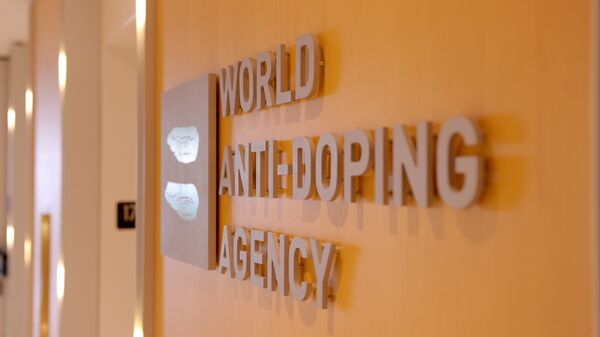The World Anti-Doping Agency (WADA) says it has temporarily suspended the WADA-approved status of the Moscow's National Anti-Doping Laboratory (Moscow Laboratory).
"The World Anti-Doping Agency (WADA) announces that it has provisionally suspended the WADA-approved status of the National Anti-Doping Laboratory of Moscow (Moscow Laboratory), Russia, with immediate effect, pending formal disciplinary action", the agency wrote on its official website.
According to the statement, "during the period of suspension, all ABP samples collected prior to the date of the provisional suspension may be analysed by the Moscow Laboratory and the laboratory will need to contact all relevant Testing Authorities to determine whether any stored ABP samples need to be transported to a WADA-accredited or ABP-approved laboratory for further analysis".
Commenting on the decision, head of the Russian Anti-Doping Agency (RUSADA) Yuri Ganus said that the suspension of the Moscow Laboratory by WADA was an expected move. He added that RUSADA will now have to submit the blood samples to foreign laboratories.
"This was foreseeable, we were preparing for this. The Moscow anti-doping laboratory was handed over to the Moscow State University, but everything, in fact, remains in the old building. Unfortunately, in the very beginning, we first faced problems with the physical samples and then with the electronic database. And this measure by [WADA] is foreseeable. They have already refused to accept samples today. We are well prepared in terms of logistics, and we are already carrying the samples to foreign laboratories. This will be more expensive", Ganus said.
Among the foreign laboratories that RUSADA was now considering to cooperate with, Ganus mentioned those in Cologne (Germany), Ghent (Belgium), Stockholm (Sweden), while Russia is also considering Poland and Rome (Italy).
While sending the samples to foreign laboratories implies extra expenses, RUSADA will do its best to remain within its budget, Ganus went on to say, praising the agency's reputation among the laboratories.
Earlier on 9 December, WADA unanimously voted to ban Russian athletes from competing in major sporting events under the Russian flag for the next four years. The agency also banned Russia from hosting major tournaments and labelled RUSADA as non-compliant with the World Anti-Doping Code.
The Russian Investigative Committee obtained evidence in December showing that former head of Russia's national anti-doping laboratory Grigory Rodchenkov had modified doping probes data of Russian athletes in 2015-2016. However, it said that WADA experts did not allow the Russian investigative body to examine data that contains information on the test results that was provided by Rodchenkov, nor did WADA allow him to be questioned on the matter.
In light of these events, Russian President Vladimir Putin said that any punishment should be individual and that all Russian sportsmen should not bear responsibility for the wrongdoing of some.



